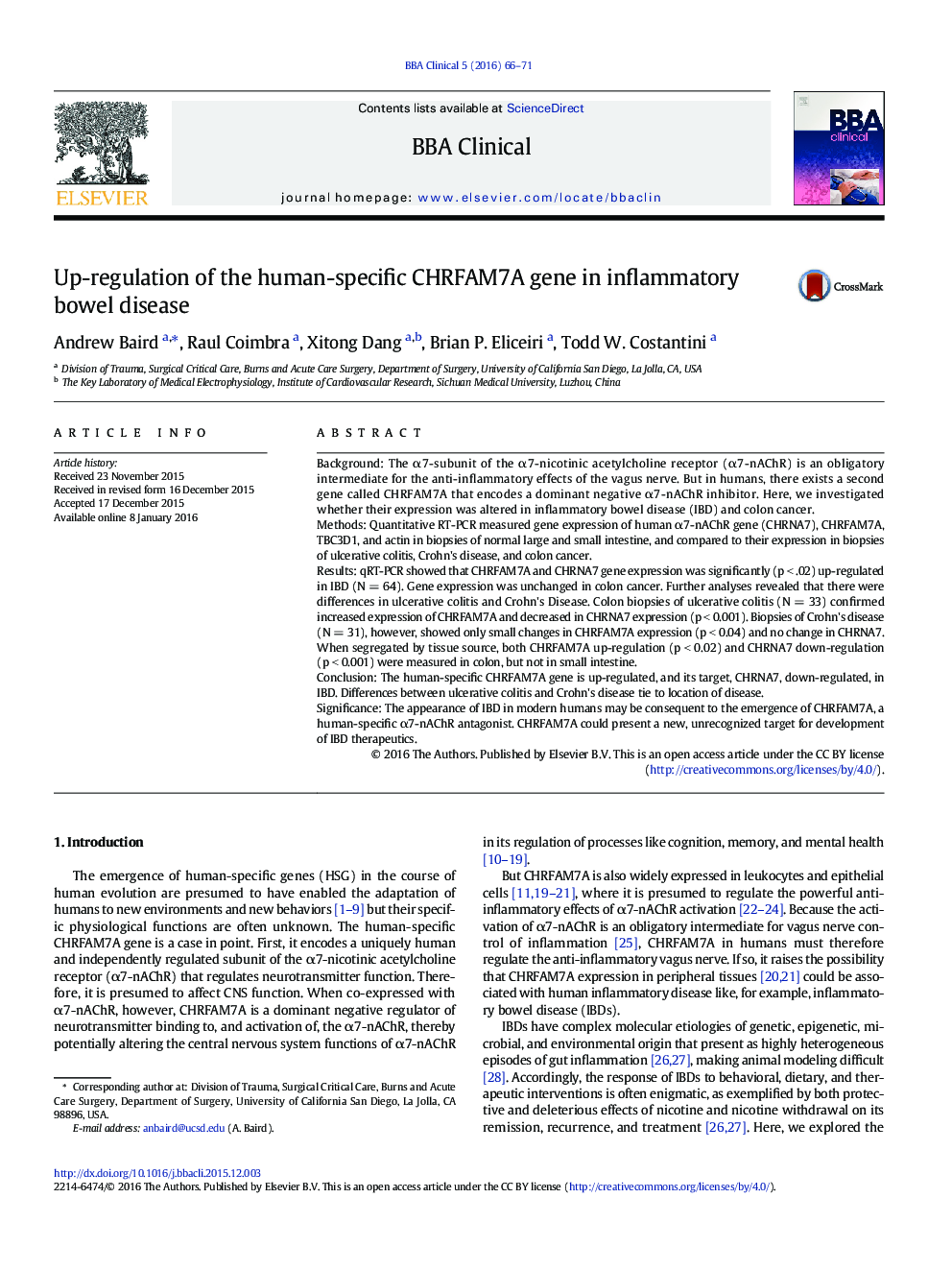| کد مقاله | کد نشریه | سال انتشار | مقاله انگلیسی | نسخه تمام متن |
|---|---|---|---|---|
| 2773090 | 1567897 | 2016 | 6 صفحه PDF | دانلود رایگان |
• CHRFAM7A is a pro-inflammatory and human-specific gene not found in other species.
• CHRFAM7A expression is elevated in certain IBD, but its target CHRNA7 decreased.
• Changes in CHRFAM7A and CHRNA7 expression are disease- and tissue site specific.
• Some IBDs may be examples of “off-target disease sequelae” of human evolution.
• Animal modeling of human disease do not test contributions of human-specific genes.
Background: The α7-subunit of the α7-nicotinic acetylcholine receptor (α7-nAChR) is an obligatory intermediate for the anti-inflammatory effects of the vagus nerve. But in humans, there exists a second gene called CHRFAM7A that encodes a dominant negative α7-nAChR inhibitor. Here, we investigated whether their expression was altered in inflammatory bowel disease (IBD) and colon cancer.Methods: Quantitative RT-PCR measured gene expression of human α7-nAChR gene (CHRNA7), CHRFAM7A, TBC3D1, and actin in biopsies of normal large and small intestine, and compared to their expression in biopsies of ulcerative colitis, Crohn's disease, and colon cancer.Results: qRT-PCR showed that CHRFAM7A and CHRNA7 gene expression was significantly (p < .02) up-regulated in IBD (N = 64). Gene expression was unchanged in colon cancer. Further analyses revealed that there were differences in ulcerative colitis and Crohn's Disease. Colon biopsies of ulcerative colitis (N = 33) confirmed increased expression of CHRFAM7A and decreased in CHRNA7 expression (p < 0.001). Biopsies of Crohn's disease (N = 31), however, showed only small changes in CHRFAM7A expression (p < 0.04) and no change in CHRNA7. When segregated by tissue source, both CHRFAM7A up-regulation (p < 0.02) and CHRNA7 down-regulation (p < 0.001) were measured in colon, but not in small intestine.Conclusion: The human-specific CHRFAM7A gene is up-regulated, and its target, CHRNA7, down-regulated, in IBD. Differences between ulcerative colitis and Crohn's disease tie to location of disease.Significance: The appearance of IBD in modern humans may be consequent to the emergence of CHRFAM7A, a human-specific α7-nAChR antagonist. CHRFAM7A could present a new, unrecognized target for development of IBD therapeutics.
Journal: BBA Clinical - Volume 5, June 2016, Pages 66–71
